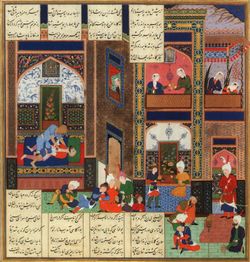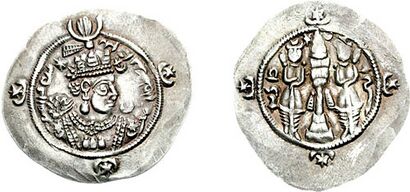628
► | قرن 6 | << قرن 7 >> | قرن 8 | ◄
► | عقد 590 | عقد 600 | عقد 610 | << عقد 620 >> | عقد 630 | عقد 640 | عقد 650 | ◄
► | ► | 623 | 624 | 625 | 626 | 627 | << 628 >> | 629 | 630 | 631 | 632 | 633 | ◄ | ◄
تحويل 1-1-628م الى هجري (وصلة خارجية) | تحويل 31-12-628م الى هجري (وصلة خارجية) | ابحث في الموسوعة عن مواضيع متعلقة بسنة 628
| الألفية: | الألفية 1 |
|---|---|
| القرون: | القرن 6 - القرن 7 - القرن 8 |
| العقود: | عقد 590 عقد 600 عقد 610 - عقد 620 - عقد 630 عقد 640 عقد 650 |
| السنوات: | 625 626 627 - 628 - 629 630 631 |
| 628 حسب الموضوع | |
| السياسة | |
| زعماء الدول – الدول ذات السيادة | |
| تصنيفات المواليد والوفيات | |
| المواليد – الوفيات | |
| تصنيفات التأسيسات والانحلالات | |
| تأسيسات – انحلالات | |
| التقويم الگريگوري | 628 DCXXVIII |
| آب أوربه كونديتا | 1381 |
| التقويم الأرمني | 77 ԹՎ ՀԷ |
| التقويم الآشوري | 5378 |
| التقويم البهائي | −1216 – −1215 |
| التقويم البنغالي | 35 |
| التقويم الأمازيغي | 1578 |
| سنة العهد الإنگليزي | N/A |
| التقويم البوذي | 1172 |
| التقويم البورمي | −10 |
| التقويم البيزنطي | 6136–6137 |
| التقويم الصيني | 丁亥年 (النار الخنزير) 3324 أو 3264 — إلى — 戊子年 (التراب الفأر) 3325 أو 3265 |
| التقويم القبطي | 344–345 |
| التقويم الديسكوردي | 1794 |
| التقويم الإثيوپي | 620–621 |
| التقويم العبري | 4388–4389 |
| التقاويم الهندوسية | |
| - ڤيكرام سامڤات | 684–685 |
| - شاكا سامڤات | 550–551 |
| - كالي يوگا | 3729–3730 |
| تقويم الهولوسين | 10628 |
| تقويم الإگبو | −372 – −371 |
| التقويم الإيراني | 6–7 |
| التقويم الهجري | 6–7 |
| التقويم الياباني | N/A |
| تقويم جوچى | N/A |
| التقويم اليوليوسي | 628 DCXXVIII |
| التقويم الكوري | 2961 |
| تقويم مينگوو | 1284 قبل جمهورية الصين 民前1284年 |
| التقويم الشمسي التايلندي | 1171 |
Year 628 (DCXXVIII) was a leap year starting on Friday (link will display the full calendar) of the Julian calendar. The denomination 628 for this year has been used since the early medieval period, when the Anno Domini calendar era became the prevalent method in Europe for naming years.
. . . . . . . . . . . . . . . . . . . . . . . . . . . . . . . . . . . . . . . . . . . . . . . . . . . . . . . . . . . . . . . . . . . . . . . . . . . . . . . . . . . . . . . . . . . . . . . . . . . . . . . . . . . . . . . . . . . . . . . . . . . . . . . . . . . . . . . . . . . . . . . . . . . . . . . . . . . . . . . . . . . . . . . .
أحداث
حسب المكان
الامبراطورية البيزنطية
- Spring – Byzantine–Sassanid War: Emperor Heraclius issues an ultimatum for peace to King Khosrow II, but he refuses his generous terms. The war-weary Persians revolt against Khosrow's regime at Ctesiphon, and install his son Kavadh II on the throne on February 25. He puts his father to death and begins negotiations with Heraclius. Kavadh is forced to return all the territories conquered during the war. The Persians must give up all of the trophies they have captured, including the relic of the True Cross. Evidently there is also a large financial indemnity. Having accepted a peace agreement on his own terms, Heraclius returns in triumph to Constantinople.[1]
- Third Perso-Turkic War: The Western Göktürks, under their leader Tong Yabghu Qaghan, plunder Tbilisi (modern Georgia). The Persian defenders are executed or mutilated; Tong Yabghu appoints governors (tuduns) to manage various tribes under his overlordship.[2]
فارس
 25 فبراير: اغتيال خسرو الثاني لتبدأ فترة فوضى في فارس (628-632). الغاصبون غير الساسانيين يتناوبون على العرش لضعف الأمراء الشرعيين: قباذ الثاني شيرو وأردشير الثالث (628-630) وشهربراز، خسرو الثالث والملك بوران دوخت (629-630)، پيروز الثاني وأزارمدوخت، هرمز السادس وخسرو الرابع (631-632). |
- 25 فبراير - خسرو الثاني، آخر شاهنشاه على الامبراطورية الساسانية، يغتاله ابنه قباذ الثاني.
- September 6 – Ardashir III, age 7, succeeds his father Kavad II as the twenty-fourth shah of the Sasanian Empire on the latter's death from the plague that is devastating western Persia.

الجزيرة العربية
- Muhammad, Islamic prophet, leads about 1,400 men on a pilgrimage to Mecca, where their passage is blocked.
- عقد صلح الحديبية بين قريش ومحمد بن عبد الله في سنة 6 للهجرة.
- مايو - غزوات للمسلمين على قبيلتي خيبر وفدعق اليهوديتين.
بريطانيا
- Battle of Cirencester: King Penda of Mercia defeats the West Saxons at Cirencester (south-west England), in what later will be Gloucestershire. After reaching an agreement, he takes control of the Severn Valley and the minor kingdom of the Hwicce.[3][4]
حسب الموضوع
الفنون والعلوم
- Indian astronomer Brahmagupta writes the Brāhmasphuṭasiddhānta, an early, yet very advanced, mathematics book, including rules for computing with zero.
التعليم
- The Sharia enjoins women as well as men to obtain secular and religious educations. It forbids eating pork, domesticated donkey, and other flesh denied to Jews by Mosaic law (تاريخ تقريبي).
الدين
- Muhammad's letters to world leaders explain the principles of the new monotheistic Muslim faith, as they will be contained in the Quran.
- Marutha of Tikrit is consecrated Maphrian of the East in the Syriac Orthodox Church.
مواليد
- July 21 – Gao Zong, emperor of the Tang dynasty (ت. 683)
- John Maron, Syriac monk and patriarch (ت. 707)
- Approximate date
- Benedict Biscop, Anglo-Saxon abbot (ت. 690)
- Gertrude of Nivelles, Austrasian abbess (ت. 659)
وفيات
- January 22 – Anastasius of Persia, monk
- February 28 – Khosrow II, king of the Persian Empire
- April 15 – Empress Suiko of Japan
- June 3 – Liang Shidu, rebel leader
- Babai the Great, church father and theologian
- Du Yan, chancellor of the Tang dynasty
- Kavadh II, king of the Sasanian Empire
- Li Dashi, Chinese official and historian (و. 570)
- Shirin, wife of Khosrow II (تاريخ تقريبي)
- Suibne Menn, High King of Ireland
- Theodelinda, queen of the Lombards
- Tong Yabghu Qaghan, ruler of the Göktürks
- مقتل ملك الدولة الساسانية كسرى الثاني .
المراجع
- ^ Kaegi 2003, pp. 178, 189–190.
- ^ Christian 1999, p. 283; Artamanov, p. 170–180.[استشهاد ناقص]
- ^ The Anglo-Saxon Chronicle[dead link]
- ^ Palmer, Alan & Veronica (1992). The Chronology of British History. London: Century Ltd. pp. 30–34. ISBN 0-7126-5616-2.
. . . . . . . . . . . . . . . . . . . . . . . . . . . . . . . . . . . . . . . . . . . . . . . . . . . . . . . . . . . . . . . . . . . . . . . . . . . . . . . . . . . . . . . . . . . . . . . . . . . . . . . . . . . . . . . . . . . . . . . . . . . . . . . . . . . . . . . . . . . . . . . . . . . . . . . . . . . . . . . . . . . . . . . .
المصادر
- Christian, David (1999). A History of Russia, Mongolia and Central Asia. Malden, MA: Blackwell. ISBN 978-0-631-20814-3.
- Kaegi, Walter E. (2003). Heraclius: emperor of Byzantium. Cambridge University Press. ISBN 0-521-81459-6.
